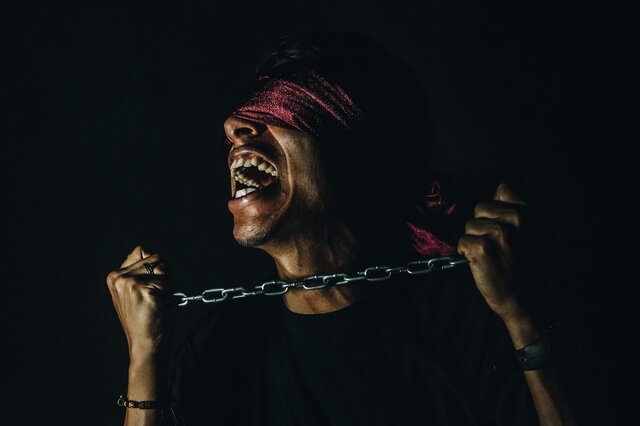Accra – Ghana should take immediate steps to end the shackling of people with real or perceived mental health conditions, Human Rights Watch (HRW) said on Thursday, a practice that continues despite legislation against it.
The global rights body said that 10 years after the adoption of a Mental Health Act establishing that people with psychosocial disabilities should not be subjected to inhumane treatment, the government was not doing enough to ensure implementation.
“Chaining people with psychosocial disabilities in prayer camps and healing centres is a form of torture,” said Shantha Rau Barriga, disability rights director at HRW.
Researchers visited five prayer camps and traditional healing centers in eastern and central regions of Ghana, interviewing more than 50 people, the group said.
During the visits, they said they found “more than 60 people chained or caged, including some children”.
Tina Gifty Mensah, Ghana deputy minister of health, said the government was not happy about the practice.
ALSO READ | Struggling Ghana plans tax rise, debt swap to secure IMF aid
“Obviously, it’s an act the constitution of Ghana frowns upon and the government and other stakeholders have also done a lot by way of education to sensitise people about it,” Mensah told AFP.
“We’ll look at the Human Rights Watch report, and the appropriate agencies will do what must be done to address this development.”
At one particular centre, 22 men were closely detained in a dark, stifling room, all of them with chains, no longer than half a metre, around their ankles, according to HRW.
“They are forced to urinate and defecate in a small bucket passed around the room. Despite the sweltering conditions, they are only allowed to bathe every two weeks,” the researchers said.
Many of them called out to the HRW researchers during their visits, begging to be released.
“We want to go home and be with our family. Help us. Please help us,” one man told HRW.
The rights body added that it also “witnessed serious human rights abuses, including lack of adequate food” and one case of “repeated sexual violence” in the camps.
Follow African Insider on Facebook, Twitter and Instagram
Source: AFP
Picture: Unsplash
For more African news, visit Africaninsider.com


